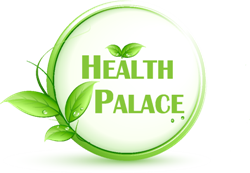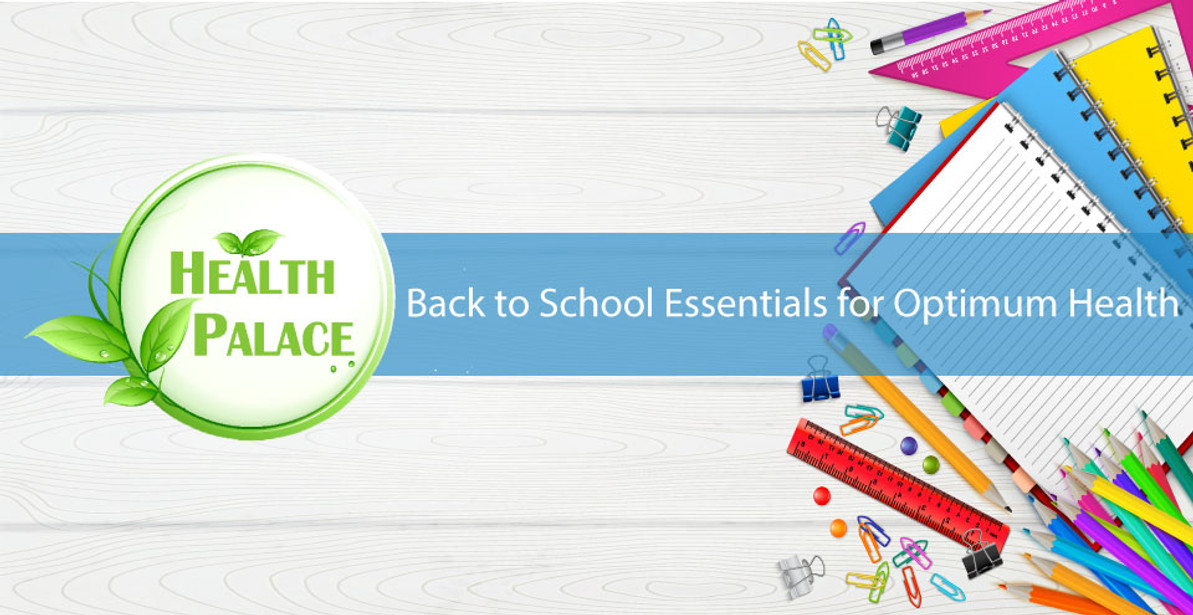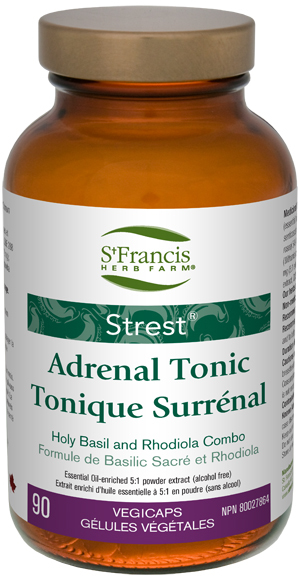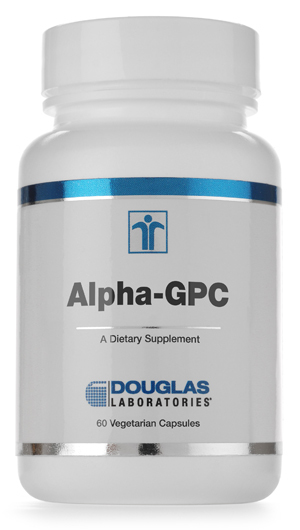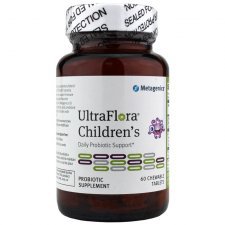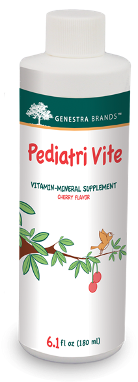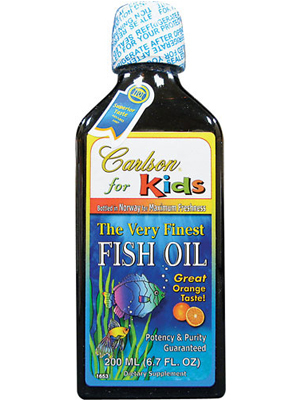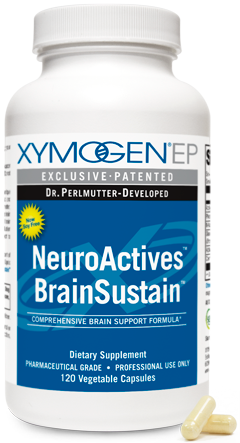How to Optimize Our Health and Performance for Back to school Season
How to Optimize Our Health and Performance for Back to School Season

It is back to school time and many are looking forward to getting back to routine and preparing to start a smart and healthy season. Key factors to start a healthy and smart season is to consider improving the immune system, boosting brain power, and reducing stress.
Experts' recommendation to avoid cold and flu starts with a simple way of properly washing hands; while most children and adults fail to do so, empowering the immune system will be an effective way to prevent or at least decrease the possibility of getting sick. Adopting a diet that is low in refined sugars, trans fats, processed food, preservatives, artificial colors, and flavors will help significantly to maintain a healthy immune system. Supplementing with proven and safe natural ingredients and optimizing levels of essential vitamins and minerals will provide great support to the immune health as well.
One of the top choices to help the immune system is Vitamin D. Vitamin D is necessary to trigger the immune system. A study from the American Journal of Clinical Nutrition suggests that daily Vitamin D supplementation in school children reduces the incidence of seasonal flu by 40 percent. Several other studies show that individuals with low levels of Vitamin D are more frequently catching a cold and flu, and that is also one of the reasons why in wintertime when there is a lack of sunshine, the cold and flu outbreaks are mostly observed. Vitamin D3 (cholecalciferol) is the biologically active and more beneficial form of vitamin D. Vitamin D3 supplements are usually produced from lanolin (a product from sheep’s Skin). However, recently a microorganism (lichen) is used to produces D3, so vegan D3 is now also available.
Since about 70% of our immune cells are in the intestine, optimizing and balancing the population of the intestinal microflora plays an important role to keep the immune system strong. Individuals with a poor balance in their intestinal microflora are more prone to get sick. Recent studies reveal that the children and elderly who were supplementing with probioticsfor six months had a significant reduction in developing cold and flu-related symptoms. Microflora can modulate the immune system via their constant signaling and interaction with the vast number of immune cells in the intestine.

Clinical trials have shown supplementation with Zinc reduces the severity and duration of cold and flu symptoms when it's taken within the first 24 hours of infection and when it's taken regularly at the daily maintenance dosage, it helps prevent the common cold. Zinc's anti-viral property is due to its ability to prevent the virus from binding to the cells of the upper respiratory tract as well as interrupting the virus replication. Zinc also inhibits the inflammatory mediators and helps with the reduction in histamine levels.
Studies say that simple Vitamin C empowers our immune system to defend against infection. Vitamin C increases the efficacy and production of white blood cells. Vitamin C has been shown to reduce the episodes of catching a cold and flu and it helps to reduce the symptoms of cold and flu. Vitamin C is better absorbed and stays longer in the body when combined with Bioflavonoids, and for those with a sensitive stomach, the Buffered version of Vitamin C (when Vitamin C is bound with minerals such as calcium and magnesium to reduce its acidity) is also available.
Many other investigations are revealing the immune-enhancing powers of natural medicines derived from Andrographis, Astragalus, Garlic, Echinacea, Elderberry, and medicinal mushrooms. Andrographis is commonly used in Asia for its multiple application such as its anti-inflammatory and immune-stimulating effects. Astragalus is a Chinese herb that has been traditionally used to treat immune deficiencies due to its richness in trace minerals and flavonoid compounds. Garlic is one of the most popular herbs used for its diverse medicinal benefits including its antimicrobial effects due to an ingredient called allicin. Allicin is produced when the garlic is crushed triggering an enzyme called alliinase which changes an in-active compound alliin to the active form of allicin. This enzyme is very sensitive to the stomach acid, also allicin itself is very unstable and quickly turns into other compounds. Only the method of alkalization can preserve and ensure the allicin's activity of garlic supplements. Elderberry or Sambucus nigra is very rich in antioxidants and scientists explain that the elderberry extract's anti-cold property is through its ability in stimulating the white blood cells.

A significant amount of research point out the importance of maintaining high levels of DHA in the brain. DHA omega 3 fatty acid is one of the main structural components of the brain representing the highest concentration in the brain from the rest of the body. DHA is crucial for optimum brain function and provides the most benefits to the nervous system among all the omega fatty acids. Many studies show a direct relationship between the intake of DHA fatty acid and brain development. Benefits of the omega 3 fatty acids go further than their importance in brain structure and development. Supplementing with DHA improves serotonin production helping to decrease signs of depression, it helps to recover and prevent cognitive impairments, it prevents the development of Alzheimer's, higher DHA levels enhance memory and learning capacity.
Scientific researches indicate that the DHA attaches to other cell membrane's structural molecules like PhosphatydylSerin (PS).Human trial shows supplementing with a combination of PS and DHA significantly improves the behavioral and learning capacity in cases of ADHD. Another structural compound of the brain is GPC (glyceryl Phosphoryl choline). GPC acts by maintaining adequate levels of the neurotransmitter acetylcholine in the brain. Supplementing with GPC shows remarkable improvement in emotional functions, depression, irritability, and mental performance.
Our body almost immediately after being under a stressful condition, produces certain neurotransmitters and hormones such as cortisol which can deal with stress. The longer stressful conditions cause deeper and more severe disturbance to the normal hormone balance, nervous system, immune system, and energy levels which consequently will adversely impact the rest of the body and organs. Researches on the natural adaptogen compounds show that they can effectively help to modulate the body's response to stress, protect the body against the adverse effects of the stress hormones, and speed up the recovery from
the stress.

Holy Basil shows to modulate the stress response and increase endurance. Medicinal mushroom Cordyceps increases stamina and revitalizes the body. Ashwagandha (Withania)in Ayurvedic medicine is used to stabilized mood and help with replenishing energy levels. Natural compounds called Rosavins in Rhodiola Rosea root have been shown to effectively promote the body's ability against both mental and physical stress. Lemon Balm is another well-researched herb providing mild sedative effects and promoting sleep.
When it comes to controlling stress, relaxation methods and meditation are effective ways as well. Meditation helps to reduce cortisol level, muscle tension, blood pressure while enhancing alertness, memory, and the brain's alpha waves to promote calm. Exercising improves cognitive cerebral blood flow resulting in better cognitive function and neuron health. Many scientific studies indicate that exercise causes an increase in nor-epinephrine and endorphins hormones providing anti-depressant benefits.
Articles and products featured by Health Palace are collected from a variety of sources and are provided as a service by Health Palace. These newsletters, while of potential interest to readers, do not necessarily represent the opinions nor constitute the advice of Health Palace. Presented materials are only for information purposes and do not intend to treat, cure, or prevent any disease.
References:
- Beard JA, Bearden A, Striker R. Vitamin D and the anti-viral state. J ClinVirol. 2011;50(3):194-200.
- Grant WB, Goldstein M, Mascitelli L. Ample evidence exists from human studies that vitamin D reduces the risk of selected bacterial and viral infections. ExpBiol Med. 2010;235(12):1395-1396.
- Baron M. A patented strain of Bacillus coagulans increased immune response to viral challenge. Postgrad Med. 2009;121(2):114-118.
- Berggren A, LazouAhren I, Larsson N, Onning G. Randomised, double-blind and placebo-controlled study using new probiotic lactobacilli for strengthening the body immune defence against viral infections. Eur J Nutr. 2011;50(3):203-210.
- de Vrese M, Schrezenmeir J. Probiotics, prebiotics, and synbiotics. AdvBiochemEngBiotechnol. 2008;111:1-66.
- Sandstead HH, Prasad AS. Zinc intake and resistance to H1N1 influenza: Am J Public Health. 2010 Jun;100(6):970-1. Epub 2010 Apr 15.
- Ely JT. Ascorbic acid role in containment of the world avian flu pandemic.ExpBiol Med. 2007;232(7):847-851.
- Heimer KA, Hart AM, Martin LG, Rubio-Wallace S. Examining the evidence for the use of vitamin C in the prophylaxis and treatment of the common cold. J Am Acad Nurse Pract. 2009;21(5):295-300.
- Hemila H. The effect of vitamin C on the common cold: J Pharm Pract. 2011 Apr;24(2):241-2.
- Maggini S, Beveridge S, and Suter M. A combination of high-dose vitamin C plus zinc for the common cold. J Int Med Res. 2012;40(1):28-42.
- AMR. Astragalusmembranaceus.Monograph.Altern Med Rev. 2003;8(1):72-77.
- Anderson R. The Immunostimulatory, Antiinflammatory and Anti-Allergic Properties of Ascorbate. [In eng] AdvNutr Res. 1984 6(19-45.
- Caruso TJ, Gwaltney JM, Jr. Treatment of the common cold with echinacea: a structured review. Clin Infect Dis. 2005;40(6):807-810.
- Kligler B, Ulbricht C, Basch E, et al. Andrographis paniculata for the treatment of upper respiratory infection: a systematic review by the natural standard research collaboration. Explore. 2006;2(1):25-29.
- Naik SR, Hule A. Evaluation of immunomodulatory activity of an extract of andrographolides from Andographispaniculata. Planta Med. 2009;75(8):785-791.
- Krawitz C, Mraheil MA, Stein M, et al. Inhibitory activity of a standardized elderberry liquid extract against clinically-relevant human respiratory bacterial pathogens and influenza A and B viruses. BMC Complement Altern Med. 2011;11:16.
- Zakay-Rones Z, Thom E, Wollan T, Wadstein J. Randomized study of the efficacy and safety of oral elderberry extract in the treatment of influenza A and B virus infections. J Int Med Res. 2004;32(2):132-40.
- Josling P. Preventing the common cold with a garlic supplement: a double-blind, placebo-controlled survey. AdvTher. 2001;18(4):189-193.
- Morris MC, Evans DA, Bienias JL, et al. Consumption of fish and n-3 fatty acids and risk of incident Alzheimer disease. Arch Neurol. 2003 Jul;60(7):940-6.
- McCann JC, Ames BN. Is docosahexaenoic acid, an n-3 long-chain polyunsaturated fatty acid, required for development of normal brain function? An overview of evidence from cognitive and behavioral tests in humans and animals. Am J Clin Nutr. 2005 Aug;82(2):281-95
- Delwaide PJ, Gyselynck-Mambourg AM, Hurlet A, Ylieff M. Double-blind randomized controlled study of phosphatidylserine in senile demented patients. Acta Neurol Scand. 1986 Feb;73(2):136-40.
- Kim HY, Bigelow J, Kevala JH. Substrate preference in phosphatidylserine biosynthesis for docosahexaenoic acid containing species. Biochemistry. 2004 Feb 3;43(4):1030-6.
- Kidd P. Phosphatidylserine: Nature’s B.B for Memory, Mood, and Stress. St. George: Total Health Communications, Inc.; 2005.
- Xiao Y, Wang L, Xu RJ, Chen ZY. DHA depletion in rat brain is associated with impairment on spatial learning and memory. Biomed Environ Sci. 2006 Dec;19(6):474-80.
- Bradbury J. Docosahexaenoic acid (DHA): an ancient nutrient for the modern human brain. Nutrients. 2011 May;3(5):529-54.
- Su HM. Mechanisms of n-3 fatty acid-mediated development and maintenance of learning memory performance. J Nutr Biochem. 2010 May;21(5):364-73.
- Hashimoto M, Hossain S, Shimada T, Shido O. Docosahexaenoic acid-induced protective effect against impaired learning in amyloid beta-infused rats is associated with increased synaptosomal membrane fluidity. Clin Exp Pharmacol Physiol. 2006 Oct;33(10):934-9.
- Chung WL, Chen JJ, Su HM. Fish oil supplementation of control and (n-3) fatty acid-deficient male rats enhances reference and working memory performance and increases brain regional docosahexaenoic acid levels. J Nutr. 2008 Jun;138(6):1165-71.
- Vakhapova V, Cohen T, Richter Y, Herzog Y, Korczyn AD. Phosphatidylserine containing omega-3 fatty acids may improve memory abilities in non-demented elderly with memory complaints: a double-blind placebo-controlled trial. Dement Geriatr Cogn Disord. 2010;29(5):467-74.
- Sinn N, Milte CM, Street SJ, et al. Effects of n-3 fatty acids, EPA v. DHA, on depressive symptoms, quality of life, memory and executive function in older adults with mild cognitive impairment: a 6-month randomised controlled trial. Br J Nutr. 2012 Jun;107(11):1682-93.
- Esterling BA, Kiecolt-Glaser JK, Bodnar JC, Glaser R. Chronic stress, social support, and persistent alterations in the natural killer cell response tocytokines in older adults. Health Psychol. 1994;13:291-8.
- Pike J, Smith T, Hauger R, et al. Chronic life stress alters sympathetic, neuroendocrine, and immune responsivity to an acute psychological stressor in humans. Psychosom Med.
- Panossian A, Wikman G. Evidence-based efficacy of adaptogens in fatigue, and molecular mechanisms related to their stress-protective activity. Curr Clin Pharmacol. 2009 Sep;4(3):198-219.
- Gupta P, Yadav DK, Siripurapu KB, Palit G, Maurya R. Constituents of Ocimum sanctum with antistress activity. J Nat Prod. 2007 Sep;70(9):1410-6.
- Zhu JS, Halpern GM, Jones K. The scientific rediscovery of an ancient Chinese herbal medicine: Cordyceps sinensis Part II. J Altern Complement Med. 1998;4(4):429-57.
- Mishra LC, Singh BB, Dagenais S. Scientific basis for the therapeutic use of Withania somnifera (ashwagandha): a review. Altern Med Rev. 2000;5(4):334-46.
- Gupta GL, Rana AC. Protective effect of Withania somnifera Dunal root extract against protracted social isolation induced behavior in rats. Indian J Physiol Pharmacol. 2007;51:345-53.
- Kelly GS. Rhodiola rosea: a possible plant adaptogen. Altern Med Rev. 2001 Jun;6(3):293-302.
- Awad R, Muhammad A, Durst T, Trudeau VL, Arnason JT. Bioassay-guided fractionation of lemon balm (Melissa officinalis L.) using an in vitro measure of GABA transaminase activity. Phytother Res. 2009 Aug;23(8):1075-81.
St Francis Strest 90 Veg Capsules
|
Douglas Laboratories Alpha GPC 60 Veg Capsules |
Metagenics UltraFlora Childrens 60 Chewable |
|||||||
|
|
|
UltraFlora™ Children's provides a proprietary blend of highly viable, pure strains of L. acidophilus NCFMA® and B. lactis Bi-07 that have been clinically shown to support immune health...Read more |
|||||||
|
|
|
|
|
||||||
|
|
|
|
|||||||
Genestra Pediatri Vite 180 Ml |
Carlson Very Finest Fish Oil For Kids Orange 200 ml |
Xymogen NeuroActives BrainSustain 120 Veg Capsules
|
|
|
|||||
|
Genestra Pediatri Vite provides a natural cherry-flavored, full-spectrum liquid vitamin and mineral combination formulated to specifically ensure optimum nutritional status for infants and children... Read more |
Carlson for Kids Very Finest Fish Oil has a great orange taste and contains 800 mg of omega-3's in each ½ teaspoonful. Carlson for Kids Very Finest Fish Oil comes from cold-water fish found in... Read more |
This unique encapsulated formula is designed to enhance brain performance and promote brain health... Read more |
|||||||
|
|
|
Recent Posts
-
Maintain A Healthy Heart Rhythm With Integrative Medicine
Maintain A Healthy Heart Rhythm With Integrative Medicine;Usually, abnormal heart rate or arrhythmi …4th Feb 2021 -
How To Protect Against COVID-19
Coronaviruses are a large group of viruses that cause many common human and animal infections. In hu …30th Jun 2020 -
How to Prevent Gallstones from Forming? | Natural Supplements for Gallstones
How To Prevent Gallstone Formation?Gallstones are hard deposits made of cholesterol or bilirubin f …4th Mar 2020
